EU and Serbia side by side
Tuesday, 03.06.2014.
12:36

EU and Serbia side by side
When it comes to reforms, the EU is in a position to provide support in terms of expertise, transfer of know-how, European standards, trade and investment and, according to the head of the EU Delegation to Serbia, the recent floods showed true EU solidarity in action and that Serbia can rely on the support of the European Union.Your appointment as Head of the EU Delegation to the Republic of Serbia coincided with the election and formation of the new government and the first steps taken following the signing of the Brussels Agreement. What dilemmas do Serbia and the EU need to resolve immediately for the accession process to proceed without a hitch? Which key steps in the reforms announced by the government are considered by the EU to be especially significant?
- Of course the government’s main concern, as we speak and in the nearest future, is to deal with the consequences of the recent catastrophic floods, to rescue people and help them to return to normal life as soon as possible. The EU and its Member States responded immediately to Serbia’s request for assistance with massive and comprehensive emergency and humanitarian support. At least 19 Member States offered assistance through the EU Civil Protection Mechanism. EULEX donated valuable equipment and supplies and brought in a heavy lift and rescue helicopter. Specialist teams from the EU with high capacity pumps worked tirelessly at the Kostolac and Nikola Tesla power plants to keep power supplies going. We are working closely with the Serbian authorities and other donors to assess the damage and activate substantial medium-and-long-term financial assistance to support the reconstruction efforts. Two commissioners – Georgieva and Hahn – visited Serbia immediately after the disaster in order to support the Serbian people and discuss what help the country needs with Serbia’s leadership. This is true EU solidarity in action. Serbia can rely on the support of the European Union.
When it comes to the use of the European Solidarity Fund, Serbia is already treated like a Member State. There is no difference; it is on an equal footing. Europe is indeed already at Serbia’s side.
I sincerely hope that we can all mobilise and use the reconstruction effort to bolster the Serbian economy and move it up into a higher gear. The challenge will be to integrate the reconstruction with the government’s priority of revitalising and reforming the economy. The European Commission is also putting a renewed emphasis on economic governance and we are eager to help Serbia to succeed in its far-reaching economic reform program.
Voters have granted the new Government a broad mandate to pursue reforms which are necessary to increase the wellbeing of the Serbian people and modernise Serbia. The EU is in a position to support these reforms, in terms of expertise, transfer of know-how, European standards, trade and investment. There is evidence from elsewhere that smart reforms done as part of the EU accession process can really turn a country around in a decade or so. Yes, it takes political leadership, national unity, and sometimes very difficult decisions, but Serbia can do it with the support that it has from the EU and its Member States – including funding for projects, technical advice, improvements and changes in legislation and its implementation, advice on efficient and transparent public administration. Serbia has a historically unique chance to transform itself into a modern, affluent and dynamic society as it joins the EU.
The new government led by Prime Minister Vučić and First Deputy Prime Minister Dačić fully understands this and is committed to making it happen. Baroness Ashton and Commissioner Štefan Füle came to Belgrade immediately after the formation of the new government to lend their support and show the EU’s commitment. We will do our utmost to support Serbia in its endeavour.
We also welcome the new government’s declared commitment to the rule of law, the protection of fundamental rights and minorities, the fight against corruption and reform of public administration. These are all “fundamentals first” elements which must be addressed successfully for the current phase of accession negotiations to succeed.
In a broader context, the continued dialogue between Belgrade and Pristina should start bringing real benefits to ordinary people. Full normalisation of relations is essential for the stability and prosperity of the whole region. Cathy Ashton noted recently that Serbia is regaining its pivotal role in the region. Certainly, Serbia is an important partner for the EU.
Serbia made a major advancement in its European integration process last year. What EU accession priorities should Serbia be mindful of right now?
- Accession negotiations are proceeding smoothly. We appreciate the high level of professionalism and engagement from the Serbian Chief Negotiator, Tanja Miščević, and her colleagues.
The first screening report, for Chapter 32 (Financial Control), was submitted to the Council on 30th April. The screening reports for important Chapters 23 and 24, on the rule of law, fundamental rights, and justice and security, reached the Council in mid-May. As we speak, altogether 18 Chapters – more than half of all 35 Chapters – have started or completed the screening. The next step here will be the preparation of comprehensive Action Plans by Serbia. This is a top priority for the Serbian government.
During their recent official visits to Serbia, both Baroness Ashton and Štefan Füle said that the EU was ready to help Serbia and accept certain idiosyncrasies regarding Serbian geopolitical interests. From today’s perspective, what similar issues could slow down Serbia’s accession process?
- Serbia is expected to align itself progressively with EU Common Foreign and Security Policy. All candidates have to align fully by the end of the negotiations.
Serbia has embarked on these negotiations with a high level of ambition: clearly, we welcome that and are ready to support Serbia in moving forward. But for the EU, there is no set timeframe for accession negotiations. Each candidate country is assessed on its merits. The duration of negotiations will be defined primarily by Serbia’s progress in fulfilling benchmarks and addressing outstanding challenges in all areas of the EU acquis.
Relations between Belgrade and Pristina have long been one of the biggest obstacles to achieving permanent stability in the region. Following the agreement, do you feel the current relationship between Belgrade and Pristina is satisfactory to Brussels or should it be developed even further?
- Normalisation of relations between Belgrade and Pristina is important for regional stability. Both Belgrade and Pristina have shown great political courage and determination since the dialogue started, first at a technical level in 2011, then at a higher political level since 2012. The EU, and especially Cathy Ashton, has also invested a lot of effort into the process and progress made by both parties is impressive.
The Brussels agreement of 19th April 2013 was a milestone that has brought the relationship between Belgrade and Pristina to a whole new level, but there are still some aspects where we need to continue our work in order for the agreement to be fully implemented.
Comprehensive normalisation of relations is an immense challenge, which will continue in the coming years – many issues still need to be addressed, but it is primarily up to both parties to decide where and how fast to progress. Both see normalisation of relations as a significant aspect of their EU aspirations.
Despite the EU’s repeated assertions that the speed of individual countries’ accessions hinges on their mutual relations, regional cooperation remains unsatisfactory. Both EU Member States from the region and pre-accession countries are to blame. What is the solution?
- There is, of course, always room for improvement. But achievements in regional cooperation have in fact been quite positive. Serbia has been working hard to improve bilateral relations with its neighbours and we welcomed PM Vučić’s decision to visit Sarajevo as his first foreign visit. We encourage Serbia to address outstanding bilateral issues with neighbouring countries, both with Member States and other countries. These include border issues, reconciliation and war-related issues, or the situation of minorities.
Predicting Serbia’s accession date is a popular activity here. Only recently, PM Aleksandar Vučić stated that the date when Serbia reaches the required standard for membership is more important that the accession date itself. Still, in your opinion, what is Serbia’s ‘pole position’ at the start of the accession process?
- The length of negotiations will be defined by Serbia’s progress, which the EU will support throughout. Each accession poses its own challenges as the EU and its acquis continue to evolve. I can only agree with Cathy Ashton who said that no one should underestimate the capabilities of Mr Vučić.
How much has Serbia progressed in terms of economic reform? Do you think the country has more specifically ‘prepared the ground’ for reforms rather than actually implementing them?
- Serbia has taken some positive steps to reform its economy. It has started fiscal consolidation efforts to halt the increase in public debt and announced several structural economic reforms. The actual implementation of these reforms will indeed be essential. On 6th May the EU’s “ECOFIN” Council (the Ministers of Finance of the EU) and Minister Krstić jointly agreed on a set of economic reforms to be carried out in 1-2 years. These concern public administration, the labour market, state-owned enterprises and the business environment (issues such as construction permits and red tape). These reforms will make Serbia’s public finances sustainable and its economy more competitive. The European Commission will support these economic reforms by allocating a significant share of its annual envelope of financial assistance for Serbia to private sector development and other growth enhancing measures.
You have been quoted recently as saying that Serbian diplomats could do more to promote the country. How would you assess the level of cooperation between the EU delegation and Serbian officials, and to what extent do both parties agree and share a consensus on the most important issues?
- At the level of officials, both in Belgrade and in Brussels, we have a full and shared understanding of priorities. We work closely on our common goal of preparing Serbia for joining the EU. I meet Serbian ministers regularly, especially Europe Minister Jadranka Joksimović. We already have an excellent working relationship with the new government. This government has set EU accession as its priority goal more clearly than any previous government.
It is no secret that accession is decided in the capitals of all EU Member States. It is a smart thing for a candidate country to be active in all 28 capitals, as all of them have to agree to the opening and closing of negotiation chapters and, ultimately, ratify Serbia’s accession to the EU. Serbia will need to rely heavily on the professionalism of its diplomats in supporting the goal of accession.
If you look at opinion polls and election results in the EU, public opinion is now less enthusiastic about enlargement than it was ten years ago, when ten countries joined the EU in what is remembered as the Big Bang enlargement. This is due to many factors, not least to the economic crisis which continues to affect many countries, as well as increases in legal and illegal immigration. At the same time, Serbia’s image in the EU is improving. This positive momentum should be built upon. Concrete further progress on the accession track will be a big help here.
Following a long period of commendations in terms of the path Serbia has taken, you said recently that the media situation here is “very unsatisfactory” and that certain developments are rather unpleasant and unacceptable. What developments were you referring to?
- The last government recognised that the situation in media in Serbia was highly unsatisfactory. A lack of transparency with regard to media ownership and media financing opens the door to undue influence on editors and journalists. Legislation has yet to catch up with the transformation of the global media through digitalisation and mass internet access. That is why the government and parliament adopted a new media strategy.
I was pleased to see that the Prime Minister included implementation of the media strategy among the priorities for the new government. The EU is working closely with the Ministry of Culture and Information on a set of three new media laws which, if properly implemented, can change things for the better. Both parliament and civil society will need to monitor implementation closely.
There is also an expectation that independent institutions such as the Press Council and Broadcasting Agency will strengthen their role as watchdogs, putting the spotlight on infringement of media standards, especially when these threaten citizens’ rights. A particular cause of concern has been the readiness in some parts of the media to carry information leaked from judicial investigations.
You have said that implementing a media strategy, respecting the rights of minorities and the LGBT community, transparent business operations and advancing the business climate were the issues that Serbia and the EU should tackle together. When do you expect dialogue about these issues to commence?
- Dialogue on these issues, which always feature prominently in the Commission’s annual Progress Report, has already started. These issues are interlinked with Chapters 23 and 24, for which the screening report has just been sent to the Council.
I would like to underline that defending the rights of the LGBT community is actually about standing up for basic human rights and not some “additional, special rights”. Rights to freedom of expression and assembly are rights guaranteed by the Serbian Constitution, from which every single citizen is entitled to benefit.
What do you make of the official Serbian position regarding the crisis in Ukraine, given you stated recently that you expected EU partners and Serbia to support the EU’s official stance on Russia’s violation of Ukraine’s territorial integrity? EU High Representative and Vice President of the European Commission, Baroness Ashton, has been working hard to help resolve the crisis in Ukraine. What effect will the EU’s efforts have in terms of reaching a solution?
- From the many conversations I have had with the Prime Minister, as well as with the Foreign Minister, it is clear that Serbia shares the EU’s deep concern about the dangerous situation in Ukraine. Serbia has also made clear its support for Ukraine’s territorial integrity.
The EU is looking to close partners and EU candidate countries to support EU efforts to resolve the crisis in Ukraine. All candidate countries are of course expected to align themselves progressively with the EU’s Common Foreign and Security Policy and to do so fully by accession.
The EU and Ukraine share an objective which transcends bilateral cooperation: gradual progress towards political association and economic integration. The EU strongly supported the holding of free and fair presidential elections in Ukraine on 25th May. The Council welcomed the deployment of the OSCE/ ODIHR observation mission in which EU Member States actively participated. The European Union stands firm in upholding Ukraine’s unity, sovereignty, independence and territorial integrity and calls upon Russia to do likewise. We welcome steps taken by the Ukrainian authorities on constitutional reform and decentralization.
In May the European Commission and the Ukrainian government signed a new “State Building Contract” programme worth €355 million. The EU has also reconfirmed commitment to sign the remaining provisions of the Association Agreement with Ukraine, including the Deep and Comprehensive Free Trade Area.
The European elections are approaching fast. It has been predicted that Euro sceptics will win more parliamentary seats and that certain organisational and structural changes could occur. Do you anticipate significant changes within the EU following the election?
- These elections are an important opportunity for citizens to express their views. The European Parliament has a growing role in offering essential democratic checks and balances. This will of course be a year of changes in Brussels as after the elections we can expect to see the formation of a new Commission and a new President of the Council.
There is also a possibility that the European Commission won’t have an enlargement commissioner after the election. What ramifications would this have for Serbia and other pre-accession countries?
- This is no more than speculation. It will be up to the new Commission to make decisions on its structure. In any case, as Commissioner Füle has made clear, the commitment to the policy of enlargement will remain.




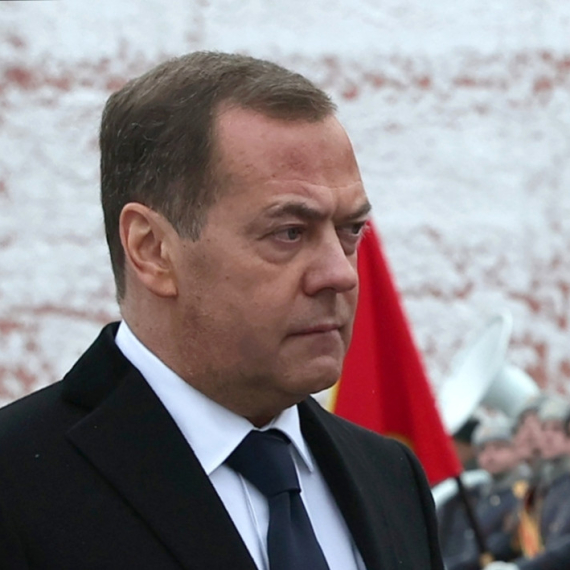

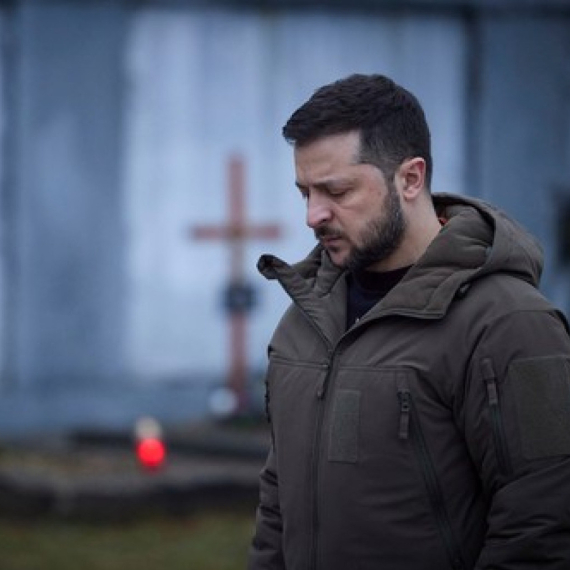




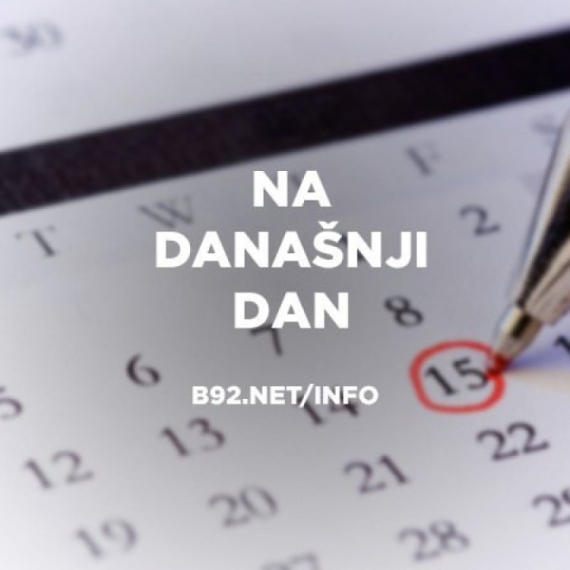

























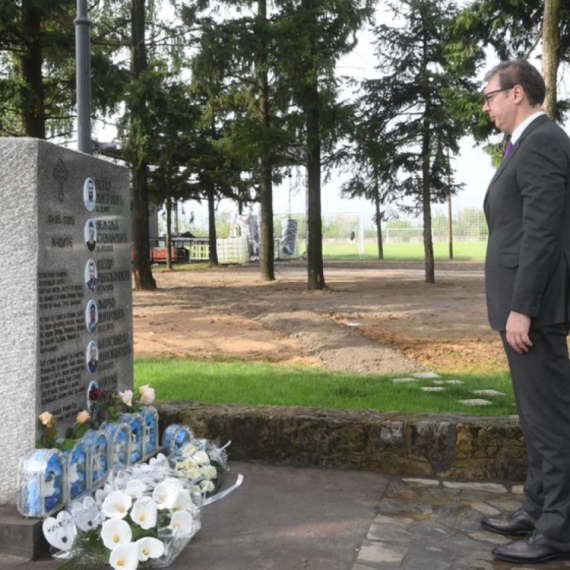

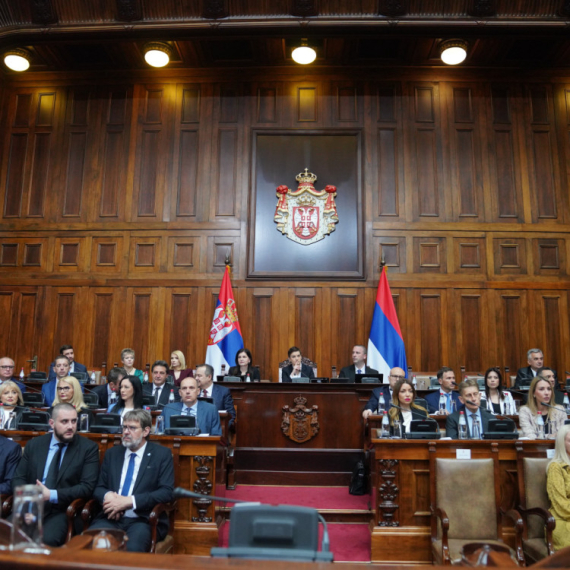

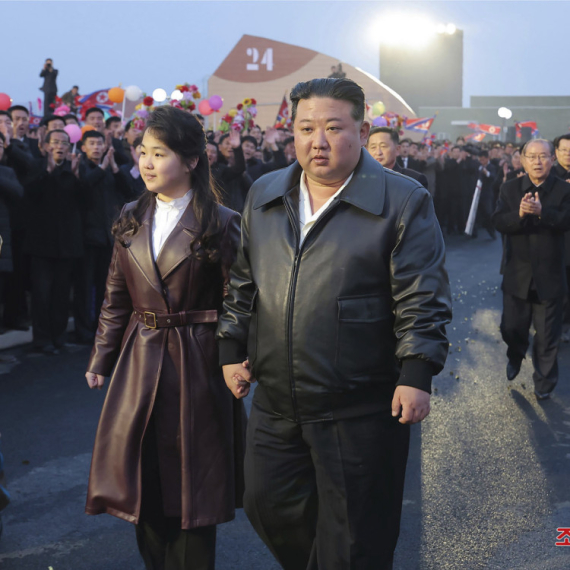

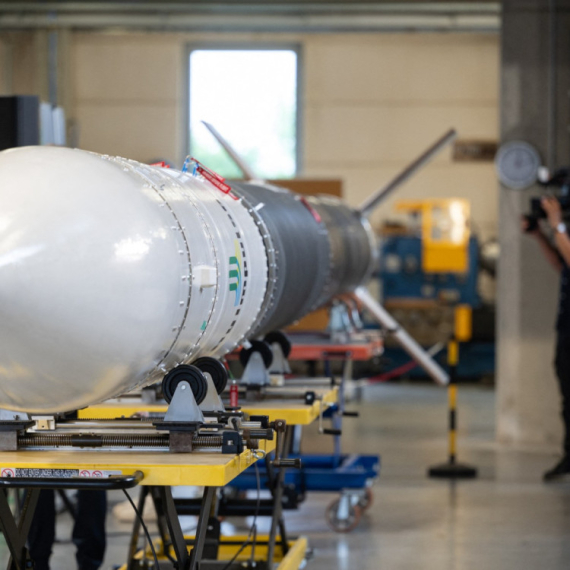







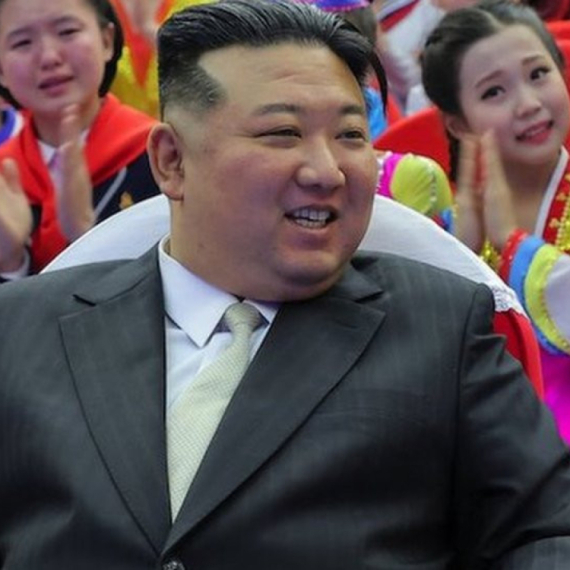
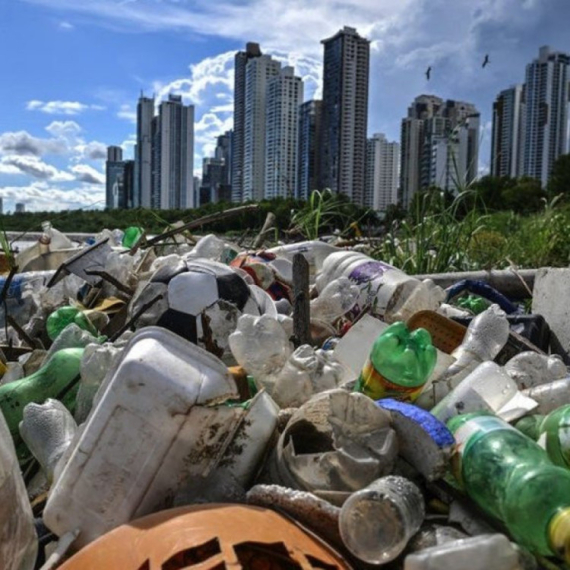
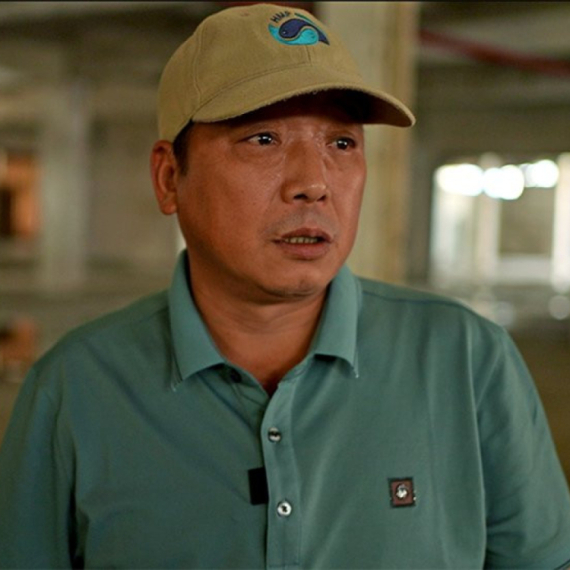



Komentari 0